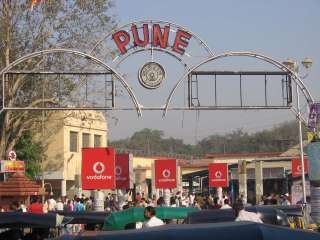Pune, with its uncleared garbage, bad roads, broken footpaths, unmindful traffic, bad air and governance that has to yet reach most citizens, ranks first among 23 cities from 20 states in the Annual Survey of India's City-System (ASICS) for 2017, making it the best governed city in the country. Pune scored 5.1 points out of 10 and left behind other cities, including Delhi (4.4) and Mumbai (4.2). Kolkata, Thiruvananthapuram, Bhubaneswar and Surat were ranked behind Pune.
The study was conducted by a non-profit organisation -- Janaagraha Centre for Citizenship and Democracy. It was a huge leap for the city which ranked ninth last year, wresting the number one position from Thiruvananthapuram. The study evaluated the quality of governance by analysing the functioning of urban local bodies. The cities scored between 3 and 5.1 on a scale of 10 based on 89 questions. Bengaluru, Chandigarh, Dehradun, Patna and Chennai constituted the bottom five cities with scores between 3.0 to 3.3. The report is based on a study of urban bodies and an analysis of laws, policies and RTI replies.
Pune, with its uncleared garbage, bad roads, broken footpaths, unmindful traffic, bad air and governance that has to yet reach most citizens, ranks first among 23 cities from 20 states in the Annual Survey of India's City-System (ASICS) for 2017, making it the best governed city in the country. Pune scored 5.1 points out of 10 and left behind other cities, including Delhi (4.4) and Mumbai (4.2). Kolkata, Thiruvananthapuram, Bhubaneswar and Surat were ranked behind Pune.
The study was conducted by a non-profit organisation -- Janaagraha Centre for Citizenship and Democracy. It was a huge leap for the city which ranked ninth last year, wresting the number one position from Thiruvananthapuram. The study evaluated the quality of governance by analysing the functioning of urban local bodies. The cities scored between 3 and 5.1 on a scale of 10 based on 89 questions. Bengaluru, Chandigarh, Dehradun, Patna and Chennai constituted the bottom five cities with scores between 3.0 to 3.3. The report is based on a study of urban bodies and an analysis of laws, policies and RTI replies.















